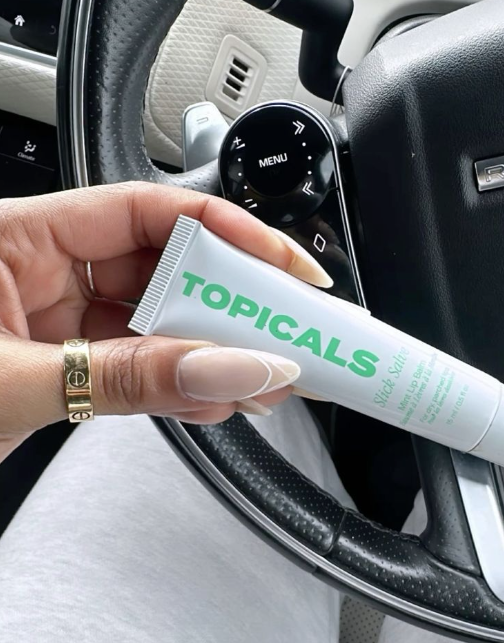One of the nifty hobbies I picked up during the pandemic was at home gardening. I love the feeling of peace, tranquility, and accomplishment I experience in the yard, enjoying the fruits of my labor. But one of the drawbacks I think about is how much time I spend in the sun. To compensate, I've invested a small fortune into the purchase of sunscreens. I even make sure that my lips are protected. Coincidentally, working out in the yard taught me another important lesson that will further enhance my ability to protect my skin from the sun.
One early morning, I decided to start my day by wearing a sheet mask while watering my plants before sunrise. Normally, my sheet masks stay hydrated for the duration of the time it remains on my face but, that morning, it became nearly bone dry as I watered my plants. The morning sun started to appear, and before 9:00 am, the sun's rays were strong enough to completely dry out all of the nourishing serum from my mask.
That experience taught me a valuable lesson.
I was shocked at how quickly the sheet mask lost its potency. Never in my life had I removed a sheet mask from my face that wasn't still saturated with product. Once I returned inside, I immediately did some research on how hydration levels in the skin and sun protection are related.
We know that a side effect of the sun's rays is dryness. If I pour some water on the concrete, the sun will cause some of the water to quickly evaporate. But I really didn't consider that this same process is also occurring on the skin. The sun has the ability to deplete the water content on the top layer of our skin (stratum corneum). Just being outside is an activity that will lead to drier skin. As the water content in our skin goes down, its sensitivity (and vulnerability) to the sun's UV rays go up. Over the course of time, our skin becomes increasingly coarse and rough as it becomes chronically dry from the effects of the sun.
There was this study of women in their 20s who didn't have any obvious skin issues. They didn't have problems with pigmentation, wrinkles, or aging-related skin concerns. The women were asked to fill out a questionnaire that the researchers used to classify them as the "indoor" or "outdoor" group. I'm assuming that the outdoor group typically spent more of their time (on average) participating in outdoor activities vs the group that mainly stayed inside.
As you would imagine, the outdoor group was found to have significantly drier skin than their counterparts. The skin of the indoor group was found to have a higher water content and their skin was less rough (smoother) than their peers. Because the entire group was in their 20s, I doubt that the differences were apparent to the naked eye...either way, the long-term effects of the sun were unmistakable when looked at closely.
The lesson for us all is that the sun is actively drying out our skin and we must do more to infuse hydration whenever we'll experience greater sun exposure. This means that I need to layer on hydrators before I apply my sunscreen even if I'm only out in the garden (especially if I'm out in the garden). On beach day, you need to go all out and execute a multi-step layering routine. This is also applicable to moisturizing the skin on your body before sun exposure.
Maybe wearing lotion on your legs isn't enough. Perhaps it's better to apply a liquid serum first, then lotion, and then maybe an spf oil to seal all that moisture in then top off with a sunscreen spray. Layinering moisture on the skin is cool, but without SPF, our efforts are futile. If you're someone who's spent a lot of time outdoors in the past, your skin has probably become inherently drier over time.
This may seem like a lot of steps but when we talk about skin hydration and protection from the sun, this process is a must. If you're going to spend all day in the sun, it might be worth your while to reapply hydration as well as reapplying sunscreen as the hours go by.
Sure, it's a little more work than we're used to but your skin will thank you.








Post a Comment